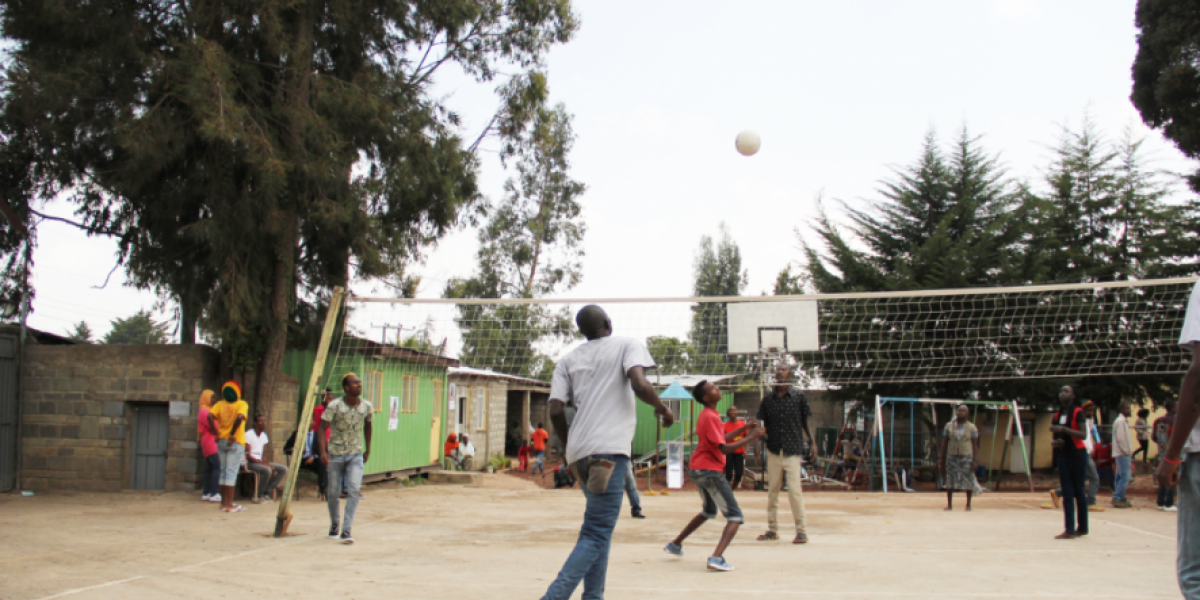
The traditional image of refugees in sprawling rural settlements and camps no long accurately depicts the reality of today’s refugee situation. With more than half of the world’s refugees living in cities and urban areas, the refugee experience itself has changed in many ways. The life of a forced migrant in an urban environment is often one invisibility and simultaneous exposure. Urban refugees and asylum seekers constantly face protection risks and are often denied access to basic services, exposing them to unique social vulnerabilities.
Ethiopia, which hosts over 830,000 displaced individuals, is experiencing a rise in numbers of urban refugees. Crises in neighboring countries such as South Sudan, Sudan, Somalia, Eritrea, and Yemen have contributed to these rising numbers. In fact, according to the UNHCR, there are over 20,000 urban refugees in the capital city of Addis Ababa, most of them from Eritrea.
Urban refugees residing in Addis Ababa and all over the world face alternative challenges to those living in camps where basic amenities such as food, water, and shelter are often available. High priced city living, limited access to social and economic services, lack of skills training, employment opportunities, and insufficient support contributes to the poor living conditions of the urban refugee experience.
In response to these harsh circumstances, JRS started the first and only urban Refugee Community Centre (RCC) in Addis Ababa in 1996. The RCC responds to the unmet needs of urban refugees and asylum seekers with a range of services and support. The vocational skills training, day care service, English language courses, psychosocial services, sports and recreation, music therapy, and emergency food and material assistance offered by RCC helps displaced persons heal, learn, and thrive in their new environments.
The RCC project provides educational support to the Somali community residing in Addis Ababa, because illiteracy is widespread among many Somali refugees. The English and computer classes, and sports activities and community services offered by JRS help many refugees improve their living situations. These educational courses and social integration programs are relevant to everyday life, as many urban refugees are unable to obtain these resources on their own. “Even if there is no money that can be given, JRS talks to us and makes us feel good despite the hardships,” said a refugee woman at the center.
During the 2016 Leaders’ Summit on Refugees, Ethiopia made pledges to address the socio-economic needs of refugees and host communities. Accordingly, the pledges will amend Ethiopia’s national law to expand the out-of-camp policy and issue work permits to refugees. JRS RCC is adapting its projects in response to the changing context, especially those activities that involve language, business, and occupational skills trainings to facilitate and empower refugee participation.
“What’s really nice about the project is that it’s the only community space for refugees. There are some people who have been coming to the center since childhood. There’s also a great relationship there between us (JRS) and the people we serve. This trust and transparency isn’t seen with many other organisations,” says Liana Tepperman, Director of Programs at JRS/USA.
The effectiveness of the services provided by JRS are recognized by urban refugee stakeholders, including UNHCR who recently helped fund the opening of a new urban Child Protection Center in July 2017. Several prominent individuals like the UN General Assembly President, and officials from the European Union and US government have made visits to the RCC. They encouraged JRS to continue to take a strong leadership role in urban refugee discussions and actions, as there is still more change to be made.



